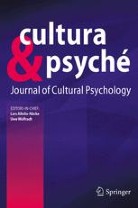Authors
Luca Tateo & Giuseppina Marsico
Abstract
In this article we discuss the decolonisation of psychology by constructing a project that is open to diversity and transdisciplinarity, rather than providing hyper-fragmented technical knowledge. In the iconic Manifesto antropófago (1928), the poet Oswald de Andrade (1890–1954) claimed the original and creative capability of Brazilian modernist culture to elaborate in original ways the European, Indio and African heritage. We discuss the anthropophagic metaphor to elaborate on human phenomena that take place in “arenas” where complementary and (often) opposing views are at stake; where the people make their own personal synthesis through coordinated “processes of creating, managing, demolishing and rebuilding” meanings about themselves and the world. Research cannot be reduced to a competition between views that strive to prevail and occupy academic niches. Instead, it should be aimed at being a collective effort of understanding through dialogue.
An innovative epistemology shall not reject any emerging idea because it belongs to a different “species” or “perspective”. It is not hegemonic, rather, it is open to the construction of knowledge through dialogue and complementarity of views. The idea of Anthropophagic Psychology rejects a “monological” epistemology and instead allows for the development of a polyphonic psychology, an arena, i.e. a local ecosystem, where the polyphony of perspectives can lead to a rich epistemic orchestration.
